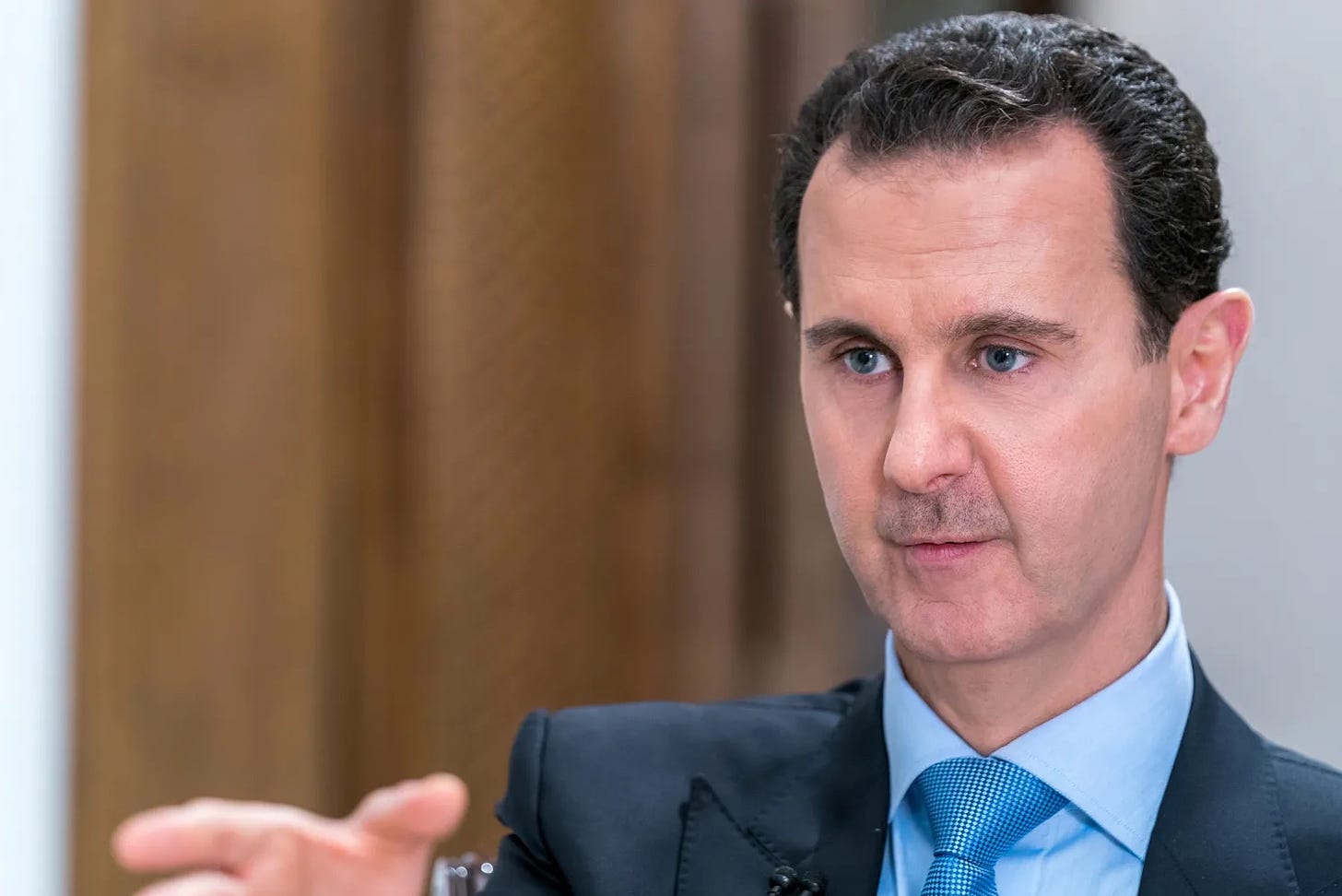Colin here. Syria is coming in from the cold. After Assad’s brutal crackdown on his own citizens, leaving an estimated 300,000 dead, and a protracted civil (and proxy war), the country was recently invited to join the Arab League’s annual summit. After being iced by both its neighbors and the West, there are signs of thawing relations.
Why is this interesting?
Not surprisingly, it is in the self-interest of some of the regional neighbors. First, there is a lot of construction and re-building business on the table. Russia has focused elsewhere on its ongoing invasion of Ukraine. The West isn’t rushing to get involved due to political stigma and existing sanctions. If Syria is to be rebuilt, some money must come from the Gulf states. The Economist explains some of the rationale behind normalization:
The UAE was among the first to break his isolation when it reopened its embassy in Damascus in 2018 and urged allies to do the same. The massive earthquakes that struck Syria (and Turkey) in February gave a larger jolt to Syria’s diplomatic standing. Many Arab leaders had wanted to reach out to Mr Assad; the disaster gave them an excuse, as they called to offer condolences and co-ordinate aid.
There are several reasons why they sought normalisation. One is a broader spirit of detente. The Saudis struck a deal in March with Iran to restore diplomatic ties and reopen embassies. After years of proxy wars in Syria, Yemen and elsewhere, both sides were keen to lower tensions and shore up their positions at home. Turkey and Egypt, mired in mutual economic crises, are trying to end a decade of animosity. Gulf states have ended their embargo of Qatar, their tiny, wayward neighbour on the Arabian peninsula, which accomplished little. Old foes across the region are keen to pretend they are friends.
Then there is the sizable refugee issue. Put simply, a lot of countries want a plan for Syrian refugees to return home. There are an estimated 2mm refugees in Lebanon, and Turkey is also feeling the strain.
Right now, Syria is a pariah state, and rightfully so. But this means it turns to illicit trade and drug smuggling to fund its coffers. An interesting data point: the most significant export from the country is Captagon, an amphetamine that is growing popular in the region. It regularly engages in every type of black market, including guns, drugs, and energy. So it will be interesting to see if the engagement strategy from the Gulf states will yield anything more productive, and stable.
The Economist proposes a more flexible approach to sanctions, concluding:
In response America and Europe should think about sanctions more flexibly. Three principles should apply. First, personal sanctions on despots—in this case Mr Assad and his cronies—should remain in place. Second, humanitarian carve-outs should permit a broader range of activities, from fixing utilities to rebuilding schools, that might help alleviate civilian suffering. The UAE is eager to build a solar-power plant in Syria that would help restore electricity, but is hesitating because it fears being punished for violating sanctions.
(CJN)
—
Thanks for reading,
Noah (NRB) & Colin (CJN)
—
Why is this interesting? is a daily email from Noah Brier & Colin Nagy (and friends!) about interesting things. If you’ve enjoyed this edition, please consider forwarding it to a friend. If you’re reading it for the first time, consider subscribing.




Been a while since I heard about Syria! Thanks.